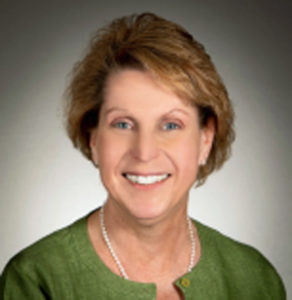 Diane Gorrell
Diane Gorrell
Manager, Contracts
Universal Health Services
King of Prussia, Pennsylvania
Contracting has been a focal point of Diane Gorrell’s professional life for 30 years. But she didn’t start out in healthcare. Born and raised in Bridgeport, Pennsylvania, Gorrell in 1988 joined what was then one of the biggest computer companies in the world – Digital Equipment Corporation, known as “DEC.” Its specialty was what the industry called “minicomputers.”
As customer service revenue administrator at DEC’s regional office in Philadelphia, Gorrell worked on pricing for hardware maintenance and software updates for DEC’s systems, many of which were installed in hospitals. Consolidation eventually cost Gorrell her position with DEC, so she took a few years off to raise two children. In 2000, she re-entered the workforce, taking a position in clinical purchasing for Sanofi, the French-based pharmaceutical firm. At Sanofi, she worked with clinical study coordinators to contract for the services of outside research organizations, such as those that did patient recruiting or who examined lab specimens – basically “any of the services that would go into the actual running of a study,” she says.
“It was my first foray into healthcare and knowing that at some level my work could help people was a good feeling.”
In January 2011, Gorrell became a sourcing and contract analyst for Universal Health Services, a hospital management comprising acute-care hospitals, ambulatory surgery centers, behavioral health facilities and other sites.
Describe a key mentor or key event in your life.
“Education was important to my parents and my brothers, and we were told there wasn’t anything we couldn’t accomplish by working hard,” she says. “In addition, I have been fortunate to work for managers who challenged me with new opportunities and took a chance. When I think back, they were mentors, and now I realize they believed in me and supported my growth. My husband, Rick, also was very supportive of me and my career aspirations.”
In what way(s) are you a better supply chain leader than you were, say, five or 10 years ago?
“I’m a new leader of a year and a half, and I believe there are lots of exciting challenges to face. My last 8 ½ years at UHS and with previous employers have taught me that as a leader, you need to listen, really listen, and pay attention. Support your staff and give them the tools they need to succeed and let them know you appreciate the hard work they put in every day.”
Describe the key characteristics of the successful supply chain leader of the future.
“It’s an ever-changing environment, and what worked 15, 10 or even five years ago, may not necessarily work today,” she says. “Leaders today and in the future can’t get stuck in believing that what worked in the past will work going forward. Leaders need to listen to those on the front lines in the hospitals and the support staff about what’s working, what isn’t, and their ideas.”
